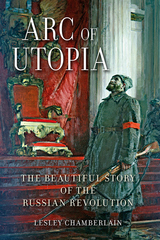
Arc of Utopia offers a fresh look at these German philosophical origins of the Russian Revolution. In the book, Lesley Chamberlain explains how influential German philosophers like Kant, Schiller, and Hegel were dazzled by contemporary events in Paris, and how this led a century later to an explosion of art and philosophy in the Russian streets, with a long-repressed people reinventing liberty, equality, and fraternity in their own cultural image. Chamberlain examines how some of the greatest Russian names of the nineteenth-century—from Alexander Herzen to Mikhail Bakunin, Ivan Turgenev to Fyodor Dostoevsky—defined their visions for Russia in relationship to their views on German enthusiasm for revolutionary France.
With the centenary of the Russian Revolution approaching, Arc of Utopia is an important and timely revisioning of this tumultuous moment in history.
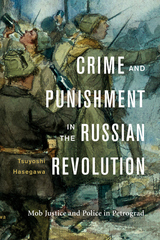
Russians from all walks of life poured into the streets of the imperial capital after the February Revolution of 1917, joyously celebrating the end of Tsar Nicholas II’s monarchy. One year later, with Lenin’s Bolsheviks now in power, Petrograd’s deserted streets presented a very different scene. No celebrations marked the Revolution’s anniversary. Amid widespread civil strife and lawlessness, a fearful citizenry stayed out of sight.
In Crime and Punishment in the Russian Revolution, Tsuyoshi Hasegawa offers a new perspective on Russia’s revolutionary year through the lens of violent crime and its devastating effect on ordinary people. When the Provisional Government assumed power after Nicholas II’s abdication, it set about instituting liberal reforms, including eliminating the tsar’s regular police. But dissolving this much-hated yet efficient police force and replacing it with a new municipal police led rapidly to the breakdown of order and services. Amid the chaos, crime flourished. Gangs of criminals, deserters, and hooligans brazenly roamed the streets. Mass prison escapes became common. And vigilantism spread widely as ordinary citizens felt compelled to take the law into their own hands, often meting out mob justice on suspected wrongdoers.
The Bolsheviks swept into power in the October Revolution but had no practical plans to reestablish order. As crime continued to escalate and violent alcohol riots almost drowned the revolutionary regime, they redefined it as “counterrevolutionary activity,” to be dealt with by the secret police, whose harshly repressive, extralegal means of enforcement helped pave the way for a Communist dictatorship.
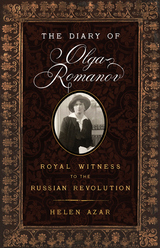
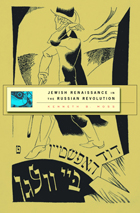
Between 1917 and 1921, as revolution convulsed Russia, Jewish intellectuals and writers across the crumbling empire threw themselves into the pursuit of a “Jewish renaissance.” At the heart of their program lay a radically new vision of Jewish culture predicated not on religion but on art and secular individuality, national in scope yet cosmopolitan in content, framed by a fierce devotion to Hebrew or Yiddish yet obsessed with importing and participating in the shared culture of Europe and the world. These cultural warriors sought to recast themselves and other Jews not only as a modern nation but as a nation of moderns.
Kenneth Moss offers the first comprehensive look at this fascinating moment in Jewish and Russian history. He examines what these numerous would-be cultural revolutionaries, such as El Lissitzky and Haim Nahman Bialik, meant by a new Jewish culture, and details their fierce disagreements but also their shared assumptions about what culture was and why it was so important. In close readings of Hebrew, Yiddish, and Russian texts, he traces how they sought to realize their ideals in practice as writers, artists, and thinkers in the burgeoning cultural centers of Moscow, Kiev, and Odessa. And he reveals what happened to them and their ideals as the Bolsheviks consolidated their hold over cultural life.
Here is a brilliant, revisionist argument about the nature of cultural nationalism, the relationship between nationalism and socialism as ideological systems, and culture itself, the axis around which the encounter between Jews and European modernity has pivoted over the past century.
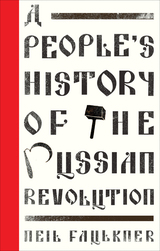
Faulkner rejects caricatures of Lenin and the Bolsheviks as authoritarian conspirators or the progenitors of Stalinist dictatorship, and forcefully argues that the Russian Revolution was an explosion of democracy and creativity—and that it was crushed by bloody counter-revolution and replaced with a form of bureaucratic state-capitalism.
Grounded by powerful first-hand testimony, this history marks the centenary of the Revolution by restoring the democratic essence of the revolution, offering a perfect primer for the modern reader.
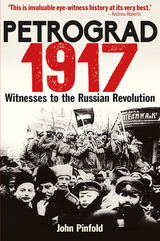
Assembling extracts from letters, journals, diaries, and memoirs from a remarkably diverse cast of both Russians and foreign nationals who were there when the revolution broke, Petrograd, 1917 is a strikingly close-up account of these world-shaking events. Each entry is supplemented with a short introductory note that sets it in context, and the book is rounded out with more than seventy illustrations, including photographs of the Romanovs and the violence in the streets as well as propaganda posters, postcards to loved ones, and more. In these pages, the drama and terror of those days comes to life once more, a century on.
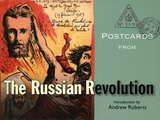
The postcards originated not only from Russia, but also from Germany, the United States, Belgium, and France, and they reflect their diverse origins in the rich array of artistic styles employed to create them. Whether simply drawn, hand-painted, or mass-printed, the cards present compelling and complex images of the Bolshevik Revolution of 1917 and the people who were enmeshed in it. The cards serve as concise yet powerful artistic documents of Russian history and culture, as they display bloody and graphic street scenes, rare pictures of lesser-known revolutionary leaders, satirical sketches of Russian rulers, portraits of the royal family, illustrations of palaces and institutional buildings, and depictions of pivotal events leading up to the Revolution such as the 1905 assassination of Grand Duke Alexander. Also included in this fascinating visual narrative are cards depicting crucial events from the aftermath of the Revolution, including the great famine of 1921 and public celebrations of the newly formed Union of Soviet Socialist Republics.
An unprecedented and arresting exploration of the Russian Empire in its death throes, Postcards from the Russian Revolution reveals a wholly new and vibrant perspective on one of the most important political movements of the twentieth century.
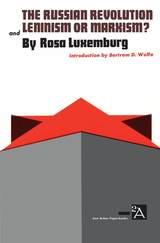

READERS
Browse our collection.
PUBLISHERS
See BiblioVault's publisher services.
STUDENT SERVICES
Files for college accessibility offices.
UChicago Accessibility Resources
home | accessibility | search | about | contact us
BiblioVault ® 2001 - 2024
The University of Chicago Press









